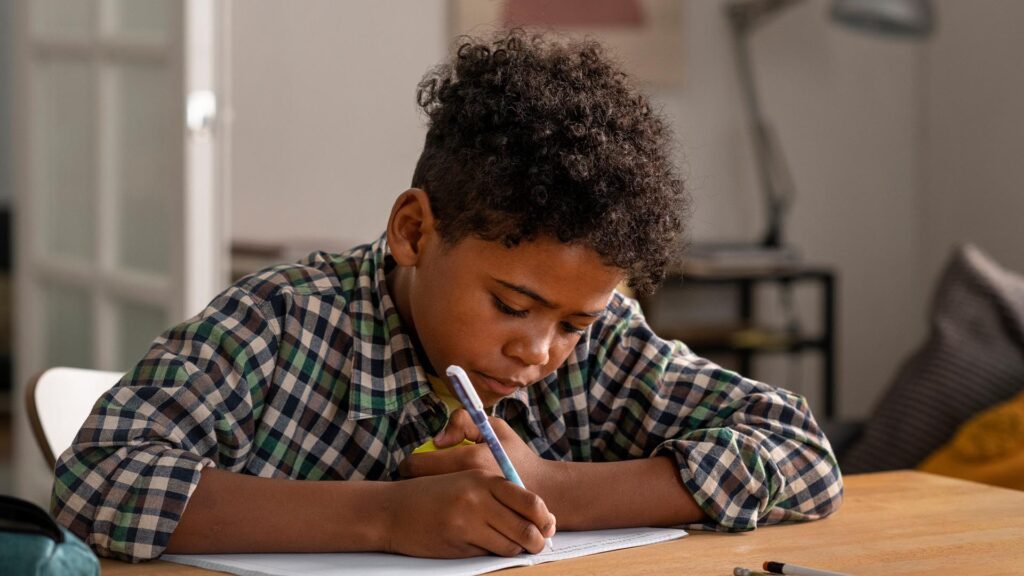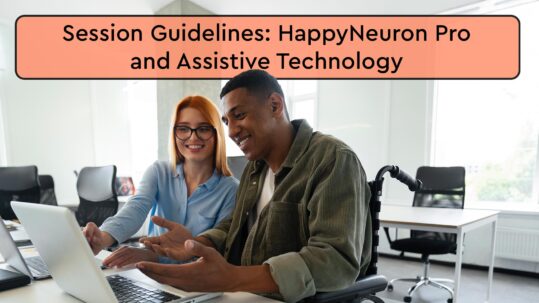When School Causes Cognitive Overwhelm
As kids and adolescents go through school, the number of tasks they need to complete can become overwhelming. Of course, this sense of overwhelm can lead to emotional consequences like anxiety or frustration—but it can also impact cognition. Let’s explore how school can cause cognitive overwhelm for students and, more importantly, what we can do as clinicians, parents, teachers, and counselors to support healthy learning, emotional balance, and self-regulation.

Cognition and School
School provides life-changing cognitive growth! During their school years, students’ cognitive skills undergo significant development, encompassing skills such as memory, language, attention, executive function, and many others. The benefits of education can’t be overstated. However, when cognitive demands outpace a student’s developmental capacity or available supports, stress can build to the point of overload.
When individuals are under chronic stress, their brain’s “thinking systems,”especially those tied to focus, working memory, and problem-solving, can temporarily go offline. Therefore, what should be an environment for growth and discovery can instead feel exhausting or defeating.
So, when is school too much, and how can we help to support students and avoid this problem?
When Is It Too Much?
Cognitive overload can occur when students are trying to focus on and process more information than their brains can handle. Many students, particularly in the teen years, juggle their many classes along with extracurricular activities, socializing and dating, family, and jobs. This nonstop mental load can lead to depleted attention, slowed processing, and eroded motivation.
Sometimes, teachers can unintentionally cause cognitive overload by expecting students to take on too much new information at once. Students can then experience anxiety and deplete their cognitive resources, to the point where they have great difficulty taking in new information. Their memory, attention, processing speed, and executive functioning skills could be impacted, making it difficult to keep up with school work.
When students experience this level of stress in the classroom, it can only be made worse by then having to juggle the rest of their demands of daily life on top of an already burnt out mind.
Supporting Cognitive Well-Being in Students
Various adults in a student’s life can help in different capacities, and it may be helpful for the adults to work together.
Firstly, recognizing early signs of cognitive overload is important. Looking out for signs such as frequent forgetfulness, tearfulness, irritability, or zoning out, may help adults intervene before burnout starts to take effect.
Teachers should also take note when students are overwhelmed or struggling to understand the material they’re being taught in class. They can then offer support, such as tutoring, study groups, or study resources. If multiple students are struggling, it is possible that the lesson plan is too demanding for the students to keep up with, and can be adjusted.
Parents can check in with students about how they’re feeling, and suggest adjustments as needed. Both parents and teachers can help the student develop a schedule or strategy for tackling all of their tasks, or work with the student to develop ways to reduce stress. At the core of all of this is highlighting advocacy for student needs, which involves the voices of parents, teachers, and clinicians.
Strategies
Here are a few strategies to help prevent cognitive overload:
- Teachers can try their best to match the difficulty of the task to the student’s skill level
- Using multi-sensory instruction. Present information in multiple ways, such as visual, auditory, or hands on learning.
- Chunk information. Introduce one skill or topic at a time, allowing for review and repetition.
- Reduce visual and auditory distractions in the classroom, such as erasing old information on the whiteboard or minimizing background noises.
- Provide students with access to the materials presented in the classroom, so they can review them later
- Parents can work with their child to figure out if their schedule is too much, and where adjustments can be made
- Limit screen time when possible. Studies show that excessive screen time can impact cognitive skills in adolescents
Helpful Tools
Here are some helpful tools that can help you to help students!
- Co-regulate first. When children are upset, start with calm connection—helping them regulate before addressing behavior or academics.
- Normalize asking for help. Encourage students to share when they feel lost or overwhelmed, and model how to self-advocate.
- Use a timer or screen turn-off app to limit screen time. Encourage tech-free periods for rest or family connection.
- Using a visual cue on the desk to assist with remembering information, such as the sequence of the classroom daily routine
- Build emotional vocabulary. Helping students label how they feel supports both language development and emotional regulation.
- Take a break. Discuss with your child or student how they can ask to use the restroom, a drink of water, or close eyes and take 5 breaths, etc.– anything that gives their mind a few minutes to relax.
- Use a planner or note taker app (if computers are available) to assist with remember important to-do’s like homework or project due dates.
- Create a “Calm Down Corner,” a space to relax and decrease stimuli. This can be made in a teacher’s classroom or at home! This could include a beanbag chair, headphones to limit auditory input, calming sensory toys, etc.
- Programming a break following the school day. After school, children often have meltdowns due to cognitive overload, and if we demand that they perform another activity (ie: ballet, swim practice) or do homework right away, they may shut down. Allowing outside time, playground time, or just free play or leisure post-school day gives a much needed mental break.
- Snacks! Eating something boosts energy and mood, this is especially helpful following the school day. Making sure they eat a balanced breakfast prior to school is also important.
- Limiting extracurricular activities. While sports, arts, and hobbies are wonderful, having 3-5 out-of-school demands adds a lot to a child’s plate. Limiting to a core 1-2 favorites will give them more free time to just be a kid, outside of scheduled tasks.
If the student has a cognitive impairment, developmental disability or mental health concerns, the cognitive overload may be exacerbated. A clinician can also work with parents and schools to find a balance for the student, where they can be sufficiently challenged without experiencing a detrimental level of overwhelm. If a child has an IEP or 504 plan, it would be helpful to include any of the suggestions above in their plan so their accommodations or modifications are in writing. For example, their plan can include increased testing time, movement breaks, sitting close to the teacher, use of headphones or sunglasses to decrease sensory stimuli, etc. Even if a teacher, parent or clinician may not think the child needs some of these accommodations at this time, they may still be a good idea to include as the demands of school increase over time and grade levels.
Final Thoughts
School offers students incredible opportunities for knowledge and growth. However, the demands and expectations of school can feel like a pressure cooker for students, particularly when combined with the other tasks in their busy lives. When a child’s cognitive and emotional needs are supported, learning becomes more meaningful and sustainable. The goal isn’t to eliminate all challenges, but to create conditions where the brain can focus, recover, and develop. Parents, teachers, counselors, and clinicians can work with students to create an environment and schedule that helps them thrive.









